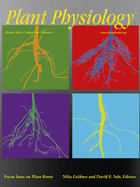First collaboration paper with a Spanish group from outside of the CBGP is out now…

Sanz, L. et al., 2014 Plant Physiology
Nitric oxide (NO) is a unique reactive nitrogen molecule with an array of signalling functions that modulates plant developmental processes and stress responses. To explore the mechanisms by which NO modulates root development, we used a pharmacological approach and NO deficient mutants to unravel the role of NO in establishing auxin distribution patterns necessary for stem cell niche homeostasis. Using the NO synthase inhibitor (L-NMMA) and Arabidopsis NO biosynthesis mutants (noa1, nia1 nia2 and nia1 nia2 noa1), we demonstrate that depletion of NO in noa1 reduces primary root elongation and increases flavonol accumulation consistent with elevated reactive oxygen species (ROS) levels. The elevated flavonols are required for the growth effect as the tt4 mutation reverses the noa1 mutant root elongation phenotype. In addition, noa1 and nia1 nia2 noa1 NO-deficient mutant roots display small root meristems with abnormal divisions. Concomitantly, auxin biosynthesis, transport and signalling are perturbed. We further show that NO accumulates in cortex/endodermis stem cells and their immediate progeny, generating endodermal and cortical tissues. In these cells, noa1 mutant acts synergistically to the effect of the wox5-1 mutation on the proximal meristem, suggesting that NO could play an important role in regulating stem cell decisions, as has been reported in animals.


